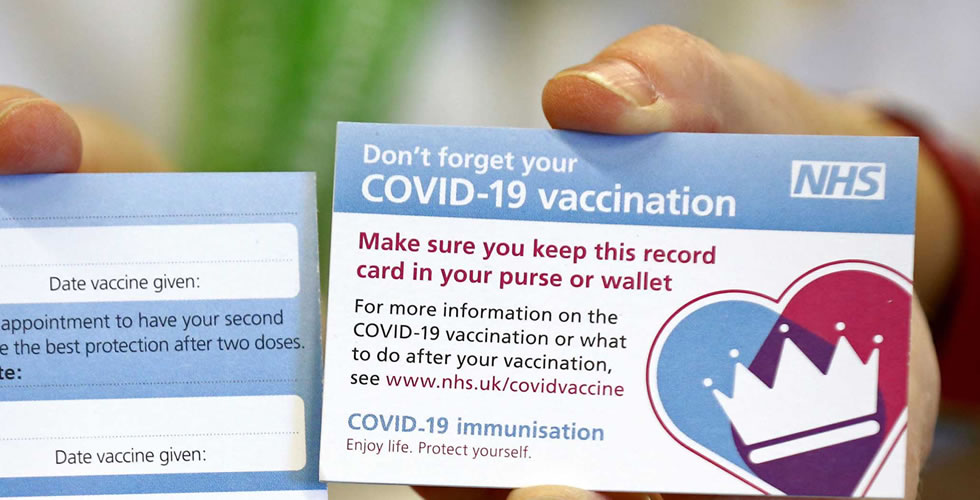Press release from the Gov.uk Website
In the last few weeks, there have been large changes in the way COVID-19 has been spreading in the UK, particularly in younger age groups. The adult vaccine programme has progressed very successfully and more safety data has become available, so it was important to review the advice for the vaccination of children and young people.
This updated advice means we can be confident that young people will be afforded around 80% protection against hospitalisation, following receipt of their first dose. It is expected that protection will probably be even higher as younger people respond better to vaccines and some will have already had the COVID-19 infection, meaning they will have an even better response to a first dose.
The JCVI has looked at the very latest safety data from the UK and other countries as we know that some serious side effects have been reported in this younger age group. This includes myocarditis (inflammation of the heart muscle) and pericarditis (inflammation of the membrane around the heart). These are extremely rare and usually occur within a few days of the second dose, typically more in young men.
Data from the US suggests that, in males aged 12 to 17 years, 9.8 cases of myocarditis were reported per million first doses given. This rises to 67 per million after the second dose. Most people recovered quickly.
We know that COVID-19 is usually mild in younger people and so it is important to weigh up the benefits of any vaccine against the possible, although extremely rare, side effects.
In the UK, where there is good uptake of the vaccine amongst adults, we can take a more precautionary approach to vaccine rollout in younger people, who are at lower risk of serious harm from COVID-19. Prioritising the first dose and delaying the recommendation on the second, allows the JCVI to provide the best available advice with the latest available information for the second dose, whilst providing some immediate protection from severe disease.
The aim is for the second dose to be given later and this will extend protection for a longer period, for example when those young people start work or go to university, or if we begin to get another wave of cases in winter. It is important to keep young people well and in school in the autumn term and to minimise disruption to education as far as possible. For now we recommend prioritising the first dose in younger age groups.
It is likely that, when the second dose is offered, this will be from 12 weeks after the first dose. The benefit of having an 8 to 12 week gap between the first and second doses is becoming increasingly clear, as it offers more protection for a longer period of time.
If younger people experience any of the following symptoms after receiving their vaccination, they should call 111 or see their GP:
- a stabbing pain and/or tightness in the chest which may spread across the body
- pain in the neck that may spread across the shoulders and/or arms
- shortness of breath when lightly exercising or walking
- difficulty breathing when resting or feeling light-headed
- flu-like symptoms such as a high temperature, tiredness and fatigue
- palpitations or an abnormal heart rhythm
- feeling like you need to be sick
More information on myocarditis and pericarditis is available from the British Heart Foundation.
Professor Wei Shen Lim, COVID-19 Chair for JCVI, said, “After carefully considering the latest data, we advise that healthy 16 to 17 year olds are offered a first dose of Pfizer-BioNTech vaccine. Advice on when to offer the second vaccine dose will come later.“
While COVID-19 is typically mild or asymptomatic in most young people, it can be very unpleasant for some and for this particular age group, we expect one dose of the vaccine to provide good protection against severe illness and hospitalisation.
As previously advised by the JCVI, children aged 12 to 15 with specific underlying health conditions that put them at risk of severe COVID-19 should be offered 2 doses of Pfizer-BioNTech vaccination with an interval of 8 weeks between doses.
This includes children with severe neurodisabilities, Down’s syndrome, immunosuppression, profound and multiple learning disabilities, and severe learning disabilities or who are on the learning disability register. Children with additional underlying health conditions to be offered vaccination will be updated in the Green Book.
Children and young people aged 12 years and over who are household contacts of an immunosuppressed person should also be offered 2 doses of the Pfizer-BioNTech vaccine.
Will you be encouraging your child to get the Covid vaccine ?





















